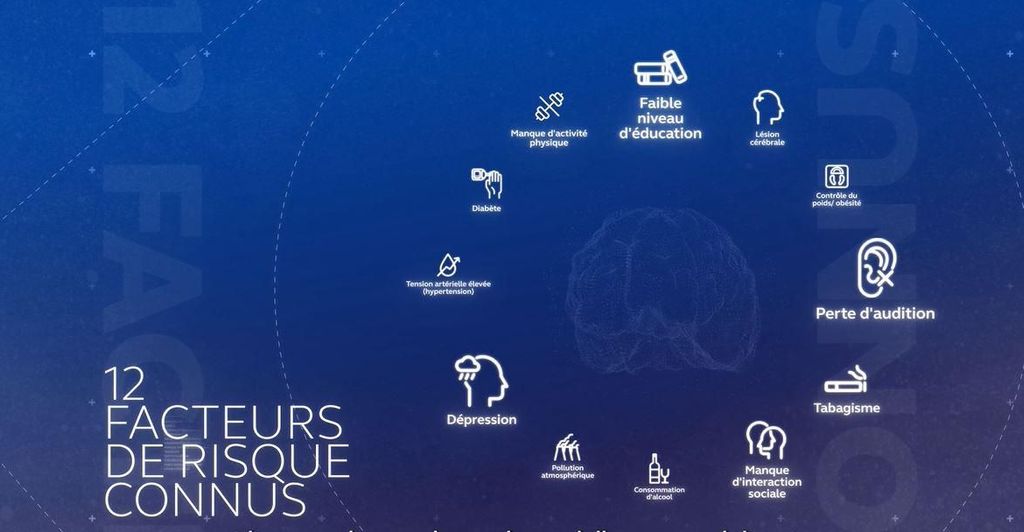Rugby et santé du cerveau
Notre cerveau est notre bien le plus précieux. Lorsque nous parlons de « Santé du cerveau », nous décrivons comment nous pouvons prendre soin de notre cerveau, de la même manière que nous savons tous qu'un mode de vie sain est bon pour notre cœur. Des interventions physiques telles que vérifier votre audition, votre glycémie et votre pression artérielle, manger sainement et pratiquer régulièrement un exercice physique, tout cela est bénéfique pour votre cerveau. Veiller à gérer sa santé mentale, éviter le stress, gérer l'anxiété et la dépression, tout en évitant l'isolement social sont autant d'éléments tout aussi importants.
Il existe 12 facteurs de risque modifiables reconnus dont il faut être conscient et qui influencent notre santé cérébrale individuelle, ce qui signifie que nous pouvons les modifier pour le mieux. L'activité physique, la dépression, la solitude et l'hypertension artérielle en sont quelques exemples. L'article du Lancet 2020 sur les facteurs de risque modifiables se trouve ici.

L'entraînement et la pratique du rugby encouragent de nombreuses « activités protectrices » pour votre cerveau. Cependant, lorsque nous cessons de jouer, nous perdons un grand nombre des avantages pour la santé physique et au niveau social qu’apporte l'activité physique dans un environnement d'équipe. Le rugby est un sport de contact et des chocs à la tête et des commotions cérébrales peuvent également se produire. Il convient de les prendre en charge correctement afin de garantir la guérison et de prévenir toute nouvelle blessure.
World Rugby déploie des efforts importants pour améliorer les mesures axées sur la prévention, la recherche, l'éducation et la pratique autour du facteur de risque particulier que constituent les lésions cérébrales. En tant que communauté, nous nous efforçons constamment d'éviter les chocs inutiles à la tête. L'engagement plus large de World Rugby en faveur de la santé cérébrale comprend des cliniques gratuites de santé cérébrale, afin de permettre aux joueurs et anciens joueurs d’avoir accès à des consultations d'experts, des conseils et des examens cliniques pour assurer une bonne gestion de la santé cérébrale.
Dans cette vidéo, des experts indépendants de premier plan, le professeur Willie Stewart, le Dr Craig Ritchie, le Dr Fiona Wilson et Karen BK Chan, expliquent comment les joueurs actuels et anciens peuvent mieux comprendre les 12 facteurs de risque modifiables connus qui influent sur notre santé cérébrale à chacun, en faisant tout ce que nous pouvons pour favoriser la santé cérébrale à long terme et réduire les risques connus qui peuvent être modifiés de manière positive par nos actions.
Pour plus d'informations et de ressources sur Brain Health, veuillez visiter le site Web de Brain Health Scotland ici




